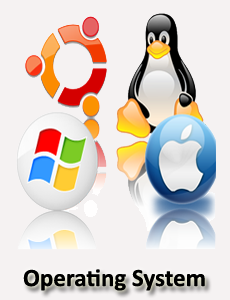Functions of Operating System
Functions of Operating System
An Operating System (OS) is a software that acts as an interface between computer hardware components and the user. Every computer system must have at least one operating system to run other programs. Applications like Browsers, MS Office, Notepad Games, etc., need some environment to run and perform its tasks.

Functions of Operating System
Following are the functions of Operating System;
Process Management: Process management helps OS to create and delete processes. It also provides mechanisms for synchronization and communication among processes.
Memory management: Memory management module performs the task of allocation and de-allocation of memory space to programs in need of this resources.
File Management: It manages all the file-related activities such as organization storage, retrieval, naming, sharing, and protection of files.
Device Management: Device management keeps tracks of all devices. This module also responsible for this task is known as the I/O controller. It also performs the task of allocation and de-allocation of the devices.
I/O System Management: One of the main objects of any OS is to hide the peculiarities of that hardware devices from the user.
Secondary-Storage Management: Systems have several levels of storage which includes primary storage, secondary storage, and cache storage. Instructions and data must be stored in primary storage or cache so that a running program can reference it.
Security: Security module protects the data and information of a computer system against malware threat and authorized access.
Command Interpretation: This module is interpreting commands given by the and acting system resources to process that commands.
Networking: A distributed system is a group of processors which do not share memory, hardware devices, or a clock. The processors communicate with one another through the network.
Job Accounting: Keeping track of time & resource used by various job and users.
Communication Management: Coordination and assignment of compilers, interpreters, and another software resource of the various users of the computer systems.

